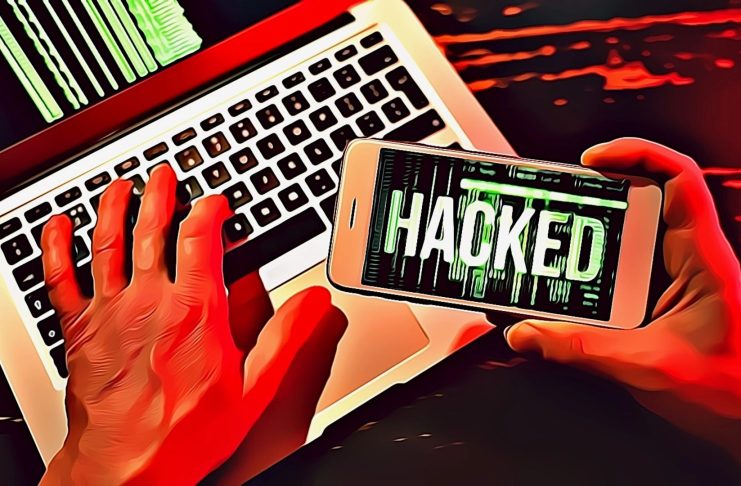News Will Izuchukwu March 25, 2025
Recently, hackers targeted the decentralized finance (DeFi) platforms GMX and Abracadabra (MIM/Spell) in a security breach, resulting in a significant loss of funds.
Blockchain security firm PeckShield reported that the attack hit certain contracts associated with GMX and Abracadabra/Spell, leading to the theft of around 6,260 ETH, worth $13 million. This has raised serious concerns in the DeFi space, with these two platforms being integral parts of the decentralized finance ecosystem.
The Nature of the Hack: Affected Contracts and Clarifications
The specific targets of the hack were the smart contracts of Abracadabra and Spell. The contracts of Abracadabra that were utilized for this hack were those known for utilizing the ‘cauldrons.’ Those cauldrons, which leverage GMX V2’s GM pools, were identified as the entry point for the breach. However, GMX itself was very clear in saying that it was not its core contracts that were breached. Instead, GMX’s team pointed the finger at the interaction between the cauldrons of Abracadabra and the GM pools used by GMX V2 as the reason for the breach.
.@GMX_IO @MIM_Spell related contracts have been hacked for ~6,260 ETH (worth ~$13M) pic.twitter.com/LZzMADWB3n
— PeckShield Inc. (@peckshield) March 25, 2025
Even with this clarification, alarms are ringing across the DeFi community about GMX-associated smart contracts. This incident is bringing to light the intricacies and potential dangers of attempting to integrate so many different protocols and platforms—secure ones, even, that could be considered model citizens of DeFi—that become, in effect, unsafe when they lean on external smart contracts and third-party code.
Immediate Responses and Investigation
After the assault, GMX and Abracadabra/Spell both wasted no time in looking into what had happened. The Security team and the affected platforms now work cooperatively, as they always should have, to get to the bottom of the incident. The platforms have allowed the research teams to focus well on the incident. They almost can point out a few reasons why and give some insight as to `how the HACK happened in the 1st place.`
The investigation is still happening, and no more information has been given yet. But the teams are expected to come up with some solutions as part of their work to keep the future promise of Web3 intact—solutions that will make decentralized financial protocols, decentralized applications (dApps), and the smart contracts they run much safer and more reliable. Because right now, in the wake of the July 4 incident, these teams are working under intense scrutiny, and the future of DeFi depends on their working out some kind of safe formula.
DeFi Security Concerns: A Growing Challenge
The $13 million heist serves as a stark reminder that the DeFi space has serious security issues. Decentralized platforms may provide us with innovative open-source financial products and services, but the very nature of being open-source leaves them exposed to vulnerabilities. In the last couple of years, hacks targeting DeFi platforms seem to have picked up not only in frequency but also in scale. The DeFi hack graph mirrors that of the traditional finance hack graph in terms of the amount of money being extracted. I would be remiss not to mention a couple of specific DeFi hacks that took place recently.
Ensuring the security of DeFi platforms is going to be crucial as those platforms continue to scale and attract real investment. Hackers have been targeting them with increasing frequency, exploiting not just inherent vulnerabilities in smart contracts but also the complex interactions between different DeFi protocols. The security of those smart contracts and the safety of funds on decentralized platforms have come under increasing scrutiny because of a string of big breaches that have occurred.
For a long time, experts in the field have been cautioning that the DeFi ecosystem—decentralized finance, for those not keeping up with the lingo—needs to improve its security to make sure we can keep growing. They say that as we become more and more interoperable and integrated with all sorts of decentralized networks, the odds of us getting hacked keep climbing.
Many of the people warning us about this also happen to be working in the DeFi space. They tell us that the hacks we keep seeing are the result of insufficiently rigorous auditing and that we just haven’t been managing our risks properly. They recommend more and better collaboration between developers and security researchers.
Impact on Users and the DeFi Ecosystem
For users, the $13 million theft is a totally unprecedented loss, especially since it happened in a sector (DeFi) where funds usually remain securely locked in code. The criminal had to breach the platform’s security to get to the money, and they did so by executing a fake transaction that counterfeited an actual transaction. The hack calls into question the fiat safety in even some of the most popular DeFi platforms and underlines the risks in dealing with them.
The DeFi system as a whole might also be affected by this hack leading to a temporary lack of confidence in several of its protocols. Trust is an absolute necessity for the system to work, and breaches like this one can seriously damage user confidence in the systems that make DeFi work. As a result, we might see a short-term reduction in the use of dApps that rely on GMX and Abracadabra, as users look for safer places to put their money.
Moreover, the breach might cause a reassessment of security in DeFi, pushing it much more into the foreground, and especially in terms of the interactions between different platforms. This is going to be a bigger issue than it already is, for sure, because many projects are attempting to integrate with one another and make use of each other’s liquidity and functionality in the process.
Moving Forward: Improving Security in DeFi
While investigation of this attack goes on, the DeFi community is likely to see more actions taken to enhance the security of decentralized platforms. A key part of this push for improved security will be the collaboration between security firms, developers, and platform operators to find and fix the vulnerabilities that led to this hack.
The security audits and code reviews conducted by outside firms will probably get tougher, and they will almost certainly demand that platforms implement even more stringent safety protocols to protect users’ funds. In a competitive future, the platforms that achieve all this and are able to demonstrate it to users will be the ones most likely to succeed.
To conclude, the GMX and Abracadabra/Spell hack reminds us how vulnerable the DeFi ecosystem still is. The community is working hard to make protocols more secure and practices better. Until the community gets that job done, though, it’s up to us—users of DeFi—to be cautious and well-informed about the ecosystem we live in and the associated risk within it.
Disclosure: This is not trading or investment advice. Always do your research before buying any Metaverse crypto coins.
Argin Chronicles Copyright © 2025.



